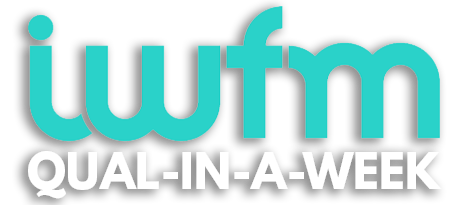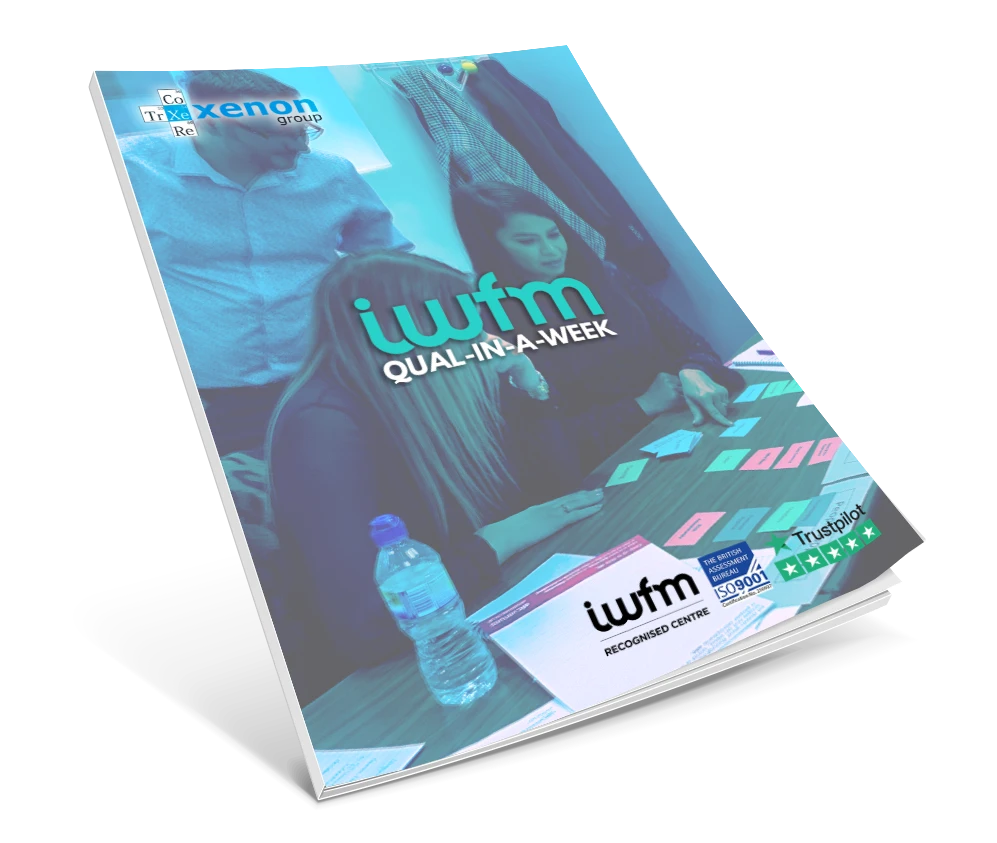Hi there,
Over the past couple of weeks, we’ve talked about the core business of an organisation, what it is and why it’s important for us as FMs to keep it in mind when we’re going about our day-to-day activities. Now, we’re going to look at exactly how facilities managers can support the core business.
Before we get onto it though, a bit of housekeeping. If you happen to have been onto our website recently, you may have noticed that we’ve had a few technical issues. As it happens, this has turned out to be a blessing, as it’s given us a natural opportunity to overhaul the site with a funky new design.
The new site should be live within the next few weeks, but in the meantime you can still access our useful resources such as our comprehensive guide to the IWFM qualifications, the One Minute Leveller tool and, for those wanting to enrol on an IWFM qualification, the enrolment form.
Anyway, enough of that! Today we’re giving you 5 ways in which FM can support the core business of an organisation. Over the next few weeks we’ll be looking at each of these in more detail, but for now here’s the top-down view…
1) Meeting End User Requirements
It’s a fairly dry way of putting it, but this is essentially the fundamental reason for FM to exist within an organisation. Depending on your organisation, end users can include staff, visitors such as clients and customers or members of the general public. Our role as FMs is to ensure that they have a safe environment that allows them to do whatever it is they’re visiting your premises for.
Different sets of users will have different – and sometimes conflicting – requirements, so it’s your job to make sure that your facilities and the services you offer are able to cater for all of these different needs.
2) Reducing Cost
Buildings and facilities often account for some of the largest costs to a business, second only to the cost of employing staff. With that in mind, FMs often find themselves responsible for trying to reduce the costs to a business and increasing profitability.
It is important to note, however, that reducing costs should be balanced with providing a quality service. Poorly maintained, scruffy premises can have a detrimental effect on both the image of the organisation and the comfort and effectiveness of staff.
And there’s one key area that should never be compromised for the sake of reducing costs – health and safety.
3) Maintaining Business Continuity
Business continuity involves ensuring that your organisation is able to continue functioning during times of crisis. Crises can come in all shapes and sizes, from a simple power outage to a full scale natural disaster.
The importance of effective business continuity cannot be overemphasised. Downtime for an organisation can potentially result in:
- Lost revenue
- Disgruntled customers
- Loss of reputation
In some cases, such as hospitals, effective business continuity could mean the difference between life and death, so you can see how it constitutes a critical part of the FM agenda.
4) Ensuring legal and regulatory compliance
Yes, I can almost hear the groans coming back to me through the internet, but ensuring that the organisation remains compliant with the law is critically important.
Whether it’s health and safety, waste regulations, environmental legislation, employment law or contract law, the consequences for getting this wrong can be severe, both for an organisation and for individuals within that organisation. But people get it wrong all the time – in fact the HSE website has a whole section dedicated to stories about companies and individuals who failed to comply with health and safety legislation.
5) Supporting Corporate and Social Responsibility (CSR)
CSR has been on the radar since the 80s, but has gradually increased in importance as we grapple with issues such as climate change, working practices and as the general public have become more vocal about the ways in which the actions of organisations affect the wider community.
The concept of CSR has recently begun evolving into ESG (Environmental, Social and Governance) but the core fundamentals are the same – what impact (either positive or negative) does an organisation have on the world around it. It’s an issue for the whole company to deal with, but the nature of FM means that we can play an important role in successful CSR (or ESG) implementation.
So there you have it – 5 ways that FM can support the core business. Bear these in mind when you’re going about your work and you’ll be well on your way to being a great facilities manager.
Next time we’ll take a closer look at the first of these – meeting end user requirements.
Until then, have a great week!
Chris and the Xenon Group team
P.S. If you haven’t already studied or started studying for an IWFM qualification, which will cover topics like this in depth and fully assess your understanding, you may want to have a look at our guide to the IWFM Qualifications which will give you a full breakdown of how they work and what’s involved in the different levels. You can download it here.
P.P.S. If you’re already considering taking a qualification but don’t know which level to go for, a good starting point is our One-Minute-Leveller tool, which will ask you a few questions and give you a recommendation based on the result. You can access it here.



